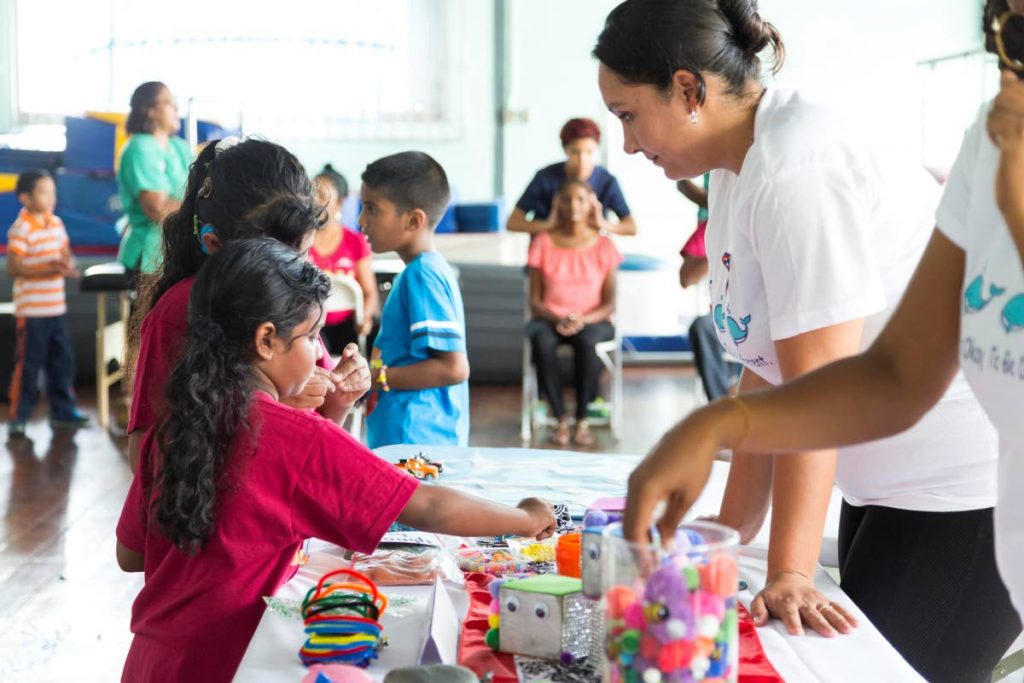Providing special needs education in TT

DR RADICA MAHASE
LAST week there was a case where Rihanna Reed, an 11-year-old girl who was diagnosed with autism fell from her apartment building and was hospitalised. It was revealed that Rihanna along with her 13-year-old brother, who was also diagnosed with autism, were not enrolled in any educational institution. Anthony Garcia, Minister of Education expressed surprised that Rihanna was not attending a school and later stated that the ministry is developing a plan to have teachers trained properly to deal with special-needs children.
Garcia noted, “We are going to pay special emphasis to the children who experience a wide range of disabilities. Apart from the delivery of quality education, one of the pillars we are building the education system this year is on access.”
Many special needs parents were outraged by the minister’s surprise that the child was not attending school and were very sceptical that the situation would change in anyway. This reaction by parents is expected given that Rihanna and her brother are just two out of many special needs children in our country who are not accessing any educational opportunities.
Of the registered members of Support Autism T&T (those with autism from ages three to 21 years), 61 per cent of all those with autism are currently not attending any kind of formal educational institution. The survey, The Multi-Disciplinary Needs Of Children With Autism Spectrum Disorder (ASD): A Parents'/Caregivers' Perspective Within Trinidad And Tobago, notes that of children with ASD attending SWRHA clinics, 41.6 per cent are enrolled in a private school, 16.6 per cent in a public school, 8.3 per cent are home schooled and 31.6 per cent have no schooling. It also notes that only seven per cent had the support of a teacher’s aide at school.

Parents/caregivers know the struggles that they experience trying to access educational opportunities for their children. But surely the system can be improved, changed, fixed? The first step towards doing this is to conduct a comprehensive survey of the educational opportunities for those with special needs that are available presently in our country. This would mean a thorough investigation into all existing government/government assisted special schools, infrastructure, teachers’ training and qualifications, number of students enrolled, number of students not enrolled, and so on. One we know what is present and where the shortcomings are we can address these specific issues and make improvements.
A comprehensive analysis of existing educational opportunities would entail meetings with stakeholders – not national consultations where, by the time individuals scheduled to speak have finished speaking, there is only 30 minutes or so to hear from others. There is a need for more focused round table discussions, interactions with parents/caregivers, educators, advocates and anyone else who are involved in the general field of special education. This is crucial in order to hear all sides of the story so that when the system is restructured, these changes will reflect the needs of all stakeholders.
In the midst of all this there should also be discussions with those with special needs who attend government special schools or regular public schools. We tend to forget that they have their own voices and their experiences would help to shape future policies. There are children with autism who are higher functioning on the spectrum whose input will be valuable in any changes that are to be implemented. There are also children with other special needs who attend government special schools or public schools whose opinions and recommendations can used as the foundation for any changes in the system.
It is also very important to include the voice of the younger generation who will be entering the field of special education as teachers. Currently UTT offers a Bachelor of Arts degree in education with a specialisation in special education. In order to fulfil curriculum specifications these students are required to conduct research into modern teaching methods, various types of special needs, setting up effective classrooms amongst other things. With their knowledge and input so much more can be done to re-conceptualise and modernise special needs education in TT.
For those of us who are looking for rays of sunshine in the midst of the storm, Garcia’s plan to focus on special needs education brings hope – hope that they will be followed up by actions so that there will be more educational opportunities for those with special needs in TT. Support Autism T&T is willing to work with Garcia and the Ministry of Education on any project that will improve the lives of those with special needs.
Dr Radica Mahase is founder/director,
Support Autism T&T


Comments
"Providing special needs education in TT"